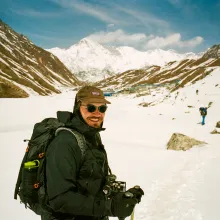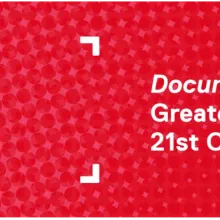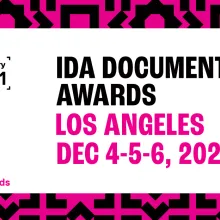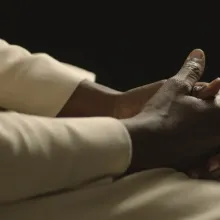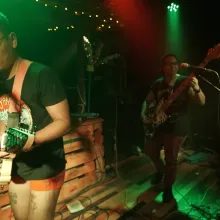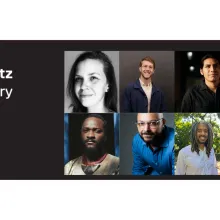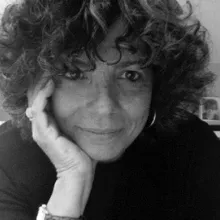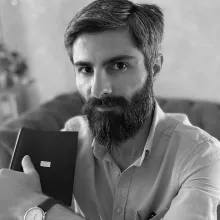Jeremy Power Regimbal is an award-winning filmmaker and photographer whose work spans feature films, documentaries, and advertising, with a focus on intimate storytelling and social impact. In his early twenties, Jeremy founded The Lab Magazine , a globally distributed publication built around long-form, unfiltered conversations with cultural icons including Willem Dafoe, Sam Rockwell, Wes Anderson, Marina Abramović, and Noam Chomsky. At 27, he made his feature directorial debut with the psychological thriller In Their Skin (2012), which premiered at the Tribeca Film Festival and was released
Latest Posts
Media Consolidation Teach-In Recording Free Press: Teach-in Presentation Slides Community Collected Teach-In Chat resources Started by filmmaker Chithra Jeyaram More about the Netflix Deal MoveOn Slams Netflix The Ankler, “ WB-NETFLIX Breakdown: Layoffs, Movies, TV, More ” Craig Aaron, “ Stop the Merger Madness ” (Pressing Issues, Dec. 5) “ Broken Promises: Media Mega-Mergers and the Case for Antitrust Reform ” (Writers Guild of America West, December 2021) Consolidation is not Inevitable NPR, The Penguin Random House and Simon & Schuster was stopped in 2022 Forbes, Why The Kroger-Albertsons
Welcome to IDA Member Spotlight, a monthly interview series highlighting IDA members and showcasing the depth and diversity of our community. This month, we had the pleasure of speaking with Araceli Seager and Adelaide Burrows. Araceli Seager is a Los Angeles-based emerging documentary filmmaker making up one half of Potential Films. She graduated from Loyola Marymount University in 2023 with a bachelor’s degree in film, television, and media studies; she later earned a master’s degree in screenwriting from Trinity College, Dublin in 2025. She has directed and produced three short
Documentary magazine is embarking on an exciting new project to anoint the 25 Greatest Docs of the 21st Century (so far!). We know we cannot do this on our own, which is why we’re asking all our active IDA members, as well as past and present magazine contributors, to help us compile this list. The last time Documentary attempted such an ambitious project was back in 2007. To commemorate its 25th anniversary, Documentary asked IDA members to vote on the “Top 25 documentaries of all time.” Surprisingly, the results had ten titles from just the first seven years of this century (Michael Moore’s
Join us for the 41st IDA Documentary Awards, as we bring together nominees, honorees, peers in the field, and industry leaders. We welcome IDA Members and the general public on Friday, December 5, to celebrate all the nominees, and Saturday, December 6, for the presentation of this year’s awards. Welcome Reception: December 4, 2025 (Nominees and guests) Meet the Nominees: December 5, 2025, LA Center Studios 41st IDA Documentary Awards: December 6, 2025, Los Angeles Athletic Club Learn more about the IDA Documentary Awards and get your tickets here . Click here for Awards graphics and stills
Congratulations to the 3 IDA grantees who have premieres at DOC NYC 2025.
Congratulations to the 7 IDA grantees who have premieres at IDFA 2025.
International Documentary Association (IDA) is proud to announce the recipients of the 2025 IDA Pare Lorentz Documentary Fund. In addition to cash grants, IDA provides artist support and professional development guidance to all grantees. Three projects were selected out of 62 applicants. Awarded projects represent six countries, including Brazil, Belgium, Mexico, Haiti, France, and the United States. The theme for the 2025 Pare Lorentz Fund is Migration in and to the Americas. IDA chose this theme to recognize and honor lives that exist across borders, and to support transnational dialogue
Welcome to IDA Member Spotlight, a monthly interview series highlighting IDA members and showcasing the depth and diversity of our community. This month, we had the pleasure of speaking with Christine La Monte, a longtime IDA member. Christine is a producer, director, writer, and former marketing executive for Universal, Disney, and Orion. She is the founder and president of La Monte Productions, where her current projects include two Oscar-qualifying feature documentaries on the awards circuit. In this interview, Christine shares insights into these projects as well as what’s next for her and
Yesterday, October 30, documentary filmmaker Giorgi Mrevlishvili was detained by authorities in Georgia. This news was reported in social media posts published by Documentary Association Georgia, one of IDA’s peer organizations.
